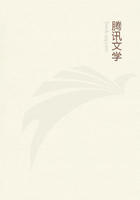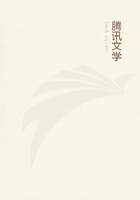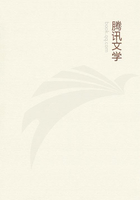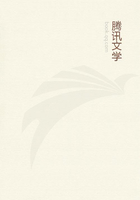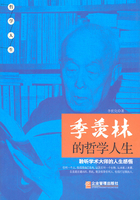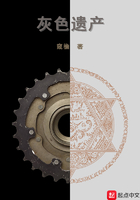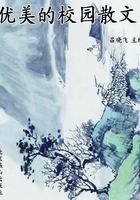476. Sooth. True. We find soothest in Milton, Comus, 823. The noun sooth (truth) is more common, and still survives in soothsayer (teller of hidden truth). Cf. v. 64 below.
478. Emprise. Enterprise. Cf. Spenser, F. Q. ii. 7. 39: "But give me leave to follow my emprise," etc.
485. His noble hand. The MS. has "This gentle hand;" and in the next line, "the oars he drew."490. Frequent. Often; one of the many instances of the adjective used adverbially in the poem.
492. The rocky isle. It is still known as Ellen's Isle. "It is rather high, and irregularly pyramidal. It is mostly composed of dark-gray rocks, mottled with pale and gray lichens, peeping out here and there amid trees that mantle them,--chiefly light, graceful birches, intermingled with red-berried mountain ashes and a few dark-green, spiry pines. The landing is beneath an aged oak; and, as did the Lady and the Knight, the traveller now ascends 'a clambering unsuspected road,' by rude steps, to the small irregular summit of the island. A more poetic, romantic retreat could hardly be imagined: it is unique. It is completely hidden, not only by the trees, but also by an undergrowth of beautiful and abundant ferns and the loveliest of heather"(Hunnewell's Lands of Scott).
500. Winded. Wound; used for the sake of the measure, as in v.
22 below. We find the participle winded in Much Ado, i. 1. 243;but it is = blown. The verb in that sense is derived from the noun wind (air in motion), and has no connection with wind, to turn. Cf. Wb.
504. Here for retreat, etc. Scott has the following note here:
"The Celtic chieftains, whose lives were continually exposed to peril, had usually, in the most retired spot of their domains, some place of retreat for the hour of necessity, which, as circumstances would admit, was a tower, a cavern, or a rustic hut, in a strong and secluded situation. One of these last gave refuge to the unfortunate Charles Edward, in his perilous wanderings after the battle of Culloden.
'It was situated in the face of a very rough, high, and rocky mountain, called Letternilichk, still a part of Benalder, full of great stones and crevices, and some scattered wood interspersed.
The habitation called the Cage, in the face of that mountain, was within a small thick bush of wood. There were first some rows of trees laid down, in order to level the floor for a habitation;and as the place was steep, this raised the lower side to an equal height with the other: and these trees, in the way of joists or planks, were levelled with earth and gravel. There were betwixt the trees, growing naturally on their own roots, some stakes fixed in the earth, which, with the trees, were interwoven with ropes, made of heath and birch twigs, up to the top of the Cage, it being of a round or rather oval shape; and the whole thatched and covered over with fog. The whole fabric hung, as it were, by a large tree, which reclined from the one end, all along the roof, to the other, and which gave it the name of the Cage; and by chance there happened to be two stones at a small distance from one another, in the side next the precipice, resembling the pillars of a chimney, where the fire was placed.
The smoke had its vent out here, all along the fall of the rock, which was so much of the same color, that one could discover no difference in the clearest day' (Home's History of the Rebellion, Lond. 1802, 4to, p. 381)."525. Idoean vine. Some have taken this to refer to the "red whortleberry," the botanical name of which is Vaccinium vitis Idoea; but as that is not a climber, it is more probably that the common vine is here meant. Idoean is from Ida, a mountain near ancient Troy (there was another in Crete), famous for its vines.
526. Clematis. The Climatis vitalba, one of the popular English names of which is virgin-bower.
528. And every favored plant could bear. That is, which could endure. This ellipsis of the relative was very common in Elizabethan English. Cf. Shakespeare, M. for M. ii. 2. 23: "Ihave a brother is condemned to die;" Rich. II. ii. 2. 128: "The hate of those love not the king," etc. See also John, iii. 11, etc.
532. On heaven and on thy lady call. This is said gayly, or sportively, as keeping up the idea of a knight-errant. Cf. 475above.
542. Careless. See on 490 above.
546. Target. Buckler; the targe of iii. 445, etc. See Scott's note on v. 380 below.
548. Store. Stored, laid up; an obsolete adjective. Cf. iii. 3below, and see also on vi. 124.
551. And there the wild-cat's, etc. The MS. reads:
"There hung the wild-cat's brindled hide, Above the elk's branched brow and skull, And frontlet of the forest bull."559. Garnish forth. Cf. furnish forth in 442 above.
566. Brook. Bear, endure; now seldom used except with reference to what is endured against one's will or inclination. It seems to be a favorite word with Scott.
573. Ferragus or Ascabart. "These two sons of Anak flourished in romantic fable. The first is well known to the admirers of Ariosto by the name of Ferrau. He was an antagonist of Orlando, and was at length slain by him in single combat. ... Ascapart, or Ascabart, makes a very material figure in the History of Bevis of Hampton, by whom he was conquered. His effigies may be seen guarding one side of the gate at Southampton, while the other is occupied by Bevis himself" (Scott).
580. To whom, though more than kindred knew. The MS. reads:
"To whom, though more remote her claim, Young Ellen gave a mother's name."She was the maternal aunt of Ellen, but was loved as a mother by her, or more than (such) kindred (usually) knew (in way of affection).
585. Though all unasked, etc. "The Highlanders, who carried hospitality to a punctilious excess, are said to have considered it as churlish to ask a stranger his name or lineage before he had taken refreshment. Feuds were so frequent among them, that a contrary rule would in many cases have produced the discovery of some circumstance which might have excluded the guest from the benefit of the assistance he stood in need of" (Scott).

